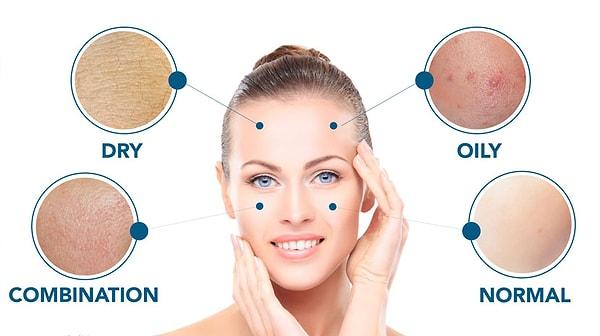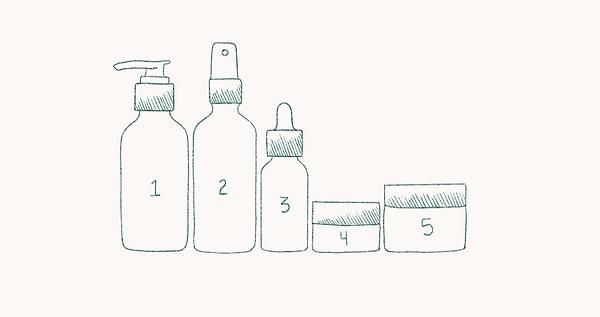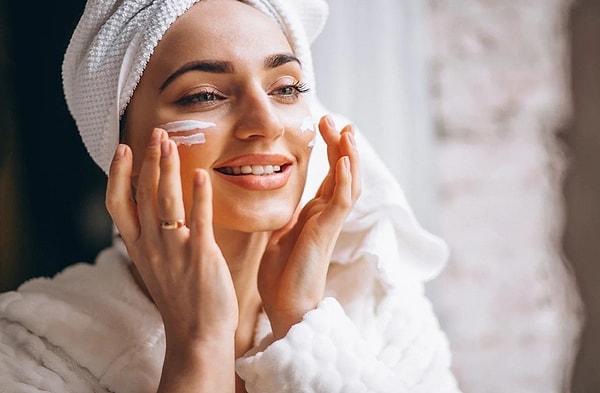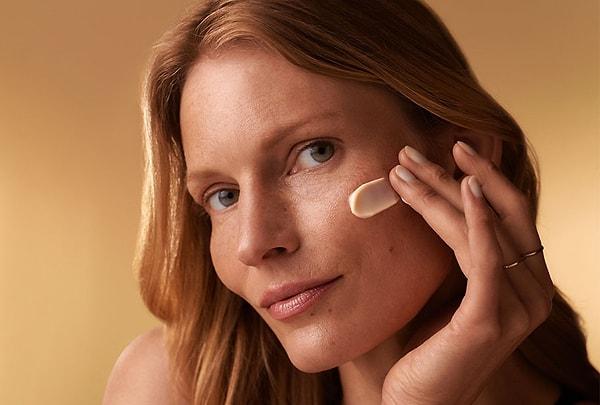Skin Care for Beginners: A Comprehensive Guide to Healthy, Radiant Skin
Our skin is not only the largest organ in our body but also a reflection of our overall health and well-being. Taking care of your skin is a vital aspect of self-care, and it's never too late to start a skin care routine. If you're new to the world of skin care, this comprehensive guide is designed for you. We will explore the basics of skin care, from understanding your skin type to creating a personalized routine and discovering the essential products that will help you achieve healthy, radiant skin. Whether you're a teenager just starting to take care of your skin or an adult looking to establish a consistent regimen, this guide will provide you with the knowledge and tools to get started on your skin care journey.
Understanding Your Skin

Before diving into a skin care routine, it's crucial to understand your skin type. Skin types can vary greatly from person to person, and the products and techniques you use should be tailored to your specific needs. The main skin types are:
Normal Skin: This skin type is well-balanced, not too oily or dry. It looks and feels healthy, with small pores and an even texture.
Oily Skin: Oily skin is characterized by excess sebum production, often resulting in a shiny appearance, enlarged pores, and a predisposition to acne.
Dry Skin: Dry skin lacks moisture and tends to feel tight and rough. It can be prone to flaking, redness, and fine lines.
Combination Skin: Combination skin is a mix of different skin types. It's common to have an oily T-zone (forehead, nose, and chin) and drier cheeks.
Sensitive Skin: Sensitive skin is prone to irritation, redness, and may react negatively to certain products or environmental factors.
Determining your skin type is the first step in creating a personalized skin care routine. You can do this by observing how your skin behaves over the course of a day or week, and consulting with a dermatologist if needed.
Creating a Basic Skin Care Routine

A basic skin care routine consists of three fundamental steps: cleansing, moisturizing, and sun protection. These steps are the building blocks of healthy skin and should be followed daily.
Cleansing: Cleansing is essential to remove dirt, oil, and makeup that accumulate on your skin. Use a gentle, sulfate-free cleanser that suits your skin type. Wash your face twice daily, in the morning and before bedtime, to maintain a clean canvas.
Moisturizing: Even if you have oily skin, moisturizing is vital. A good moisturizer helps keep your skin hydrated, improves its barrier function, and can prevent issues like dryness and excessive oil production. Choose a moisturizer designed for your skin type.
Sun Protection: Protecting your skin from the sun's harmful UV rays is one of the most crucial steps in any skin care routine. Apply a broad-spectrum sunscreen with an SPF of at least 30 in the morning, even on cloudy days. Sunscreen helps prevent premature aging, sunburn, and reduces the risk of skin cancer.
Choosing the Right Products

Selecting the right skin care products is essential for achieving your desired results. When you're new to skin care, it's easy to feel overwhelmed by the sheer variety of products available. Here's a breakdown of some of the basic products you might consider adding to your routine:
Cleanser: As mentioned earlier, a cleanser tailored to your skin type is a must. If you have sensitive skin, look for a fragrance-free, gentle cleanser.
Moisturizer: Choose a moisturizer that aligns with your skin type. For example, gel-based moisturizers are suitable for oily skin, while creamier ones are better for dry skin.
Sunscreen: Sunscreen is non-negotiable. Opt for a broad-spectrum sunscreen with an SPF rating appropriate for your skin type and your level of sun exposure.
Serums: Serums are products that contain a higher concentration of active ingredients. They can target specific concerns like dark spots, fine lines, or acne. Consider adding a serum to your routine once you're comfortable with the basics.
Exfoliants: Exfoliants help remove dead skin cells, unclog pores, and promote skin renewal. There are two main types: physical exfoliants (scrubs) and chemical exfoliants (like alpha hydroxy acids or beta hydroxy acids). Be cautious with exfoliants, as overuse can irritate the skin.
Eye Cream: Eye creams are formulated to address the delicate skin around the eyes. They can help reduce puffiness, dark circles, and fine lines.
Masks: Face masks can provide additional benefits to your skin. Clay masks are excellent for deep cleansing, while sheet masks can offer hydration and other specific treatments.
When introducing new products to your routine, it's essential to patch test them on a small area of skin to ensure you don't have an adverse reaction. Also, remember that consistency is key. Don't expect immediate results, as it can take several weeks or even months to see significant changes in your skin.
Developing a Routine

Now that you have a grasp of the basic steps and products, it's time to develop a routine. Here's a sample routine for both morning and evening:
Morning Routine:
Cleanse your face with a gentle cleanser.
Apply a moisturizer suitable for your skin type.
Finish with a broad-spectrum sunscreen with at least SPF 30.
Evening Routine:
Cleanse your face to remove the day's impurities.
Use a moisturizer.
If you're using serums or treatments, apply them after cleansing.
Optional: Exfoliate (1-3 times a week, based on your skin's tolerance).
Consider an eye cream.
Ensure your lips are hydrated with a lip balm.
Keep in mind that consistency is essential in skin care. Follow your routine daily, and you'll start seeing improvements in your skin over time.
Additional Tips for Healthy Skin

In addition to your basic routine, here are some additional tips for maintaining healthy, radiant skin:
Stay Hydrated: Drinking enough water is crucial for skin health. Hydrated skin looks and feels better.
Diet Matters: A balanced diet with plenty of fruits, vegetables, and omega-3 fatty acids can positively impact your skin's appearance.
Avoid Smoking and Excessive Alcohol: Both can have detrimental effects on your skin's health and appearance.
Get Adequate Sleep: A good night's sleep allows your skin to repair and regenerate.
Manage Stress: Chronic stress can trigger skin issues. Find healthy ways to manage stress, like yoga, meditation, or exercise.
Consult a Dermatologist: If you have specific skin concerns or issues that don't seem to improve with your routine, consider consulting a dermatologist for professional guidance.
Keşfet ile ziyaret ettiğin tüm kategorileri tek akışta gör!


Send Comment